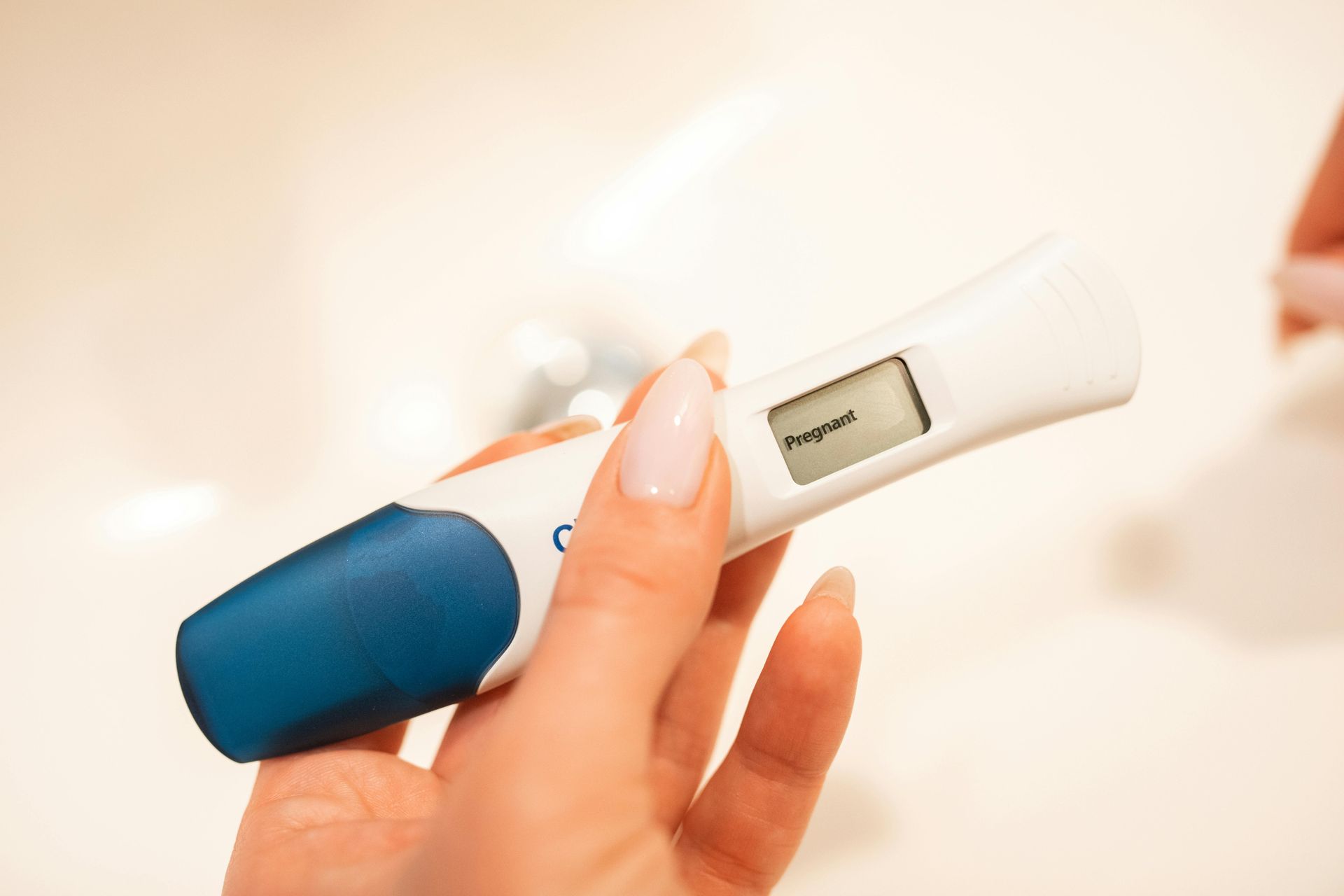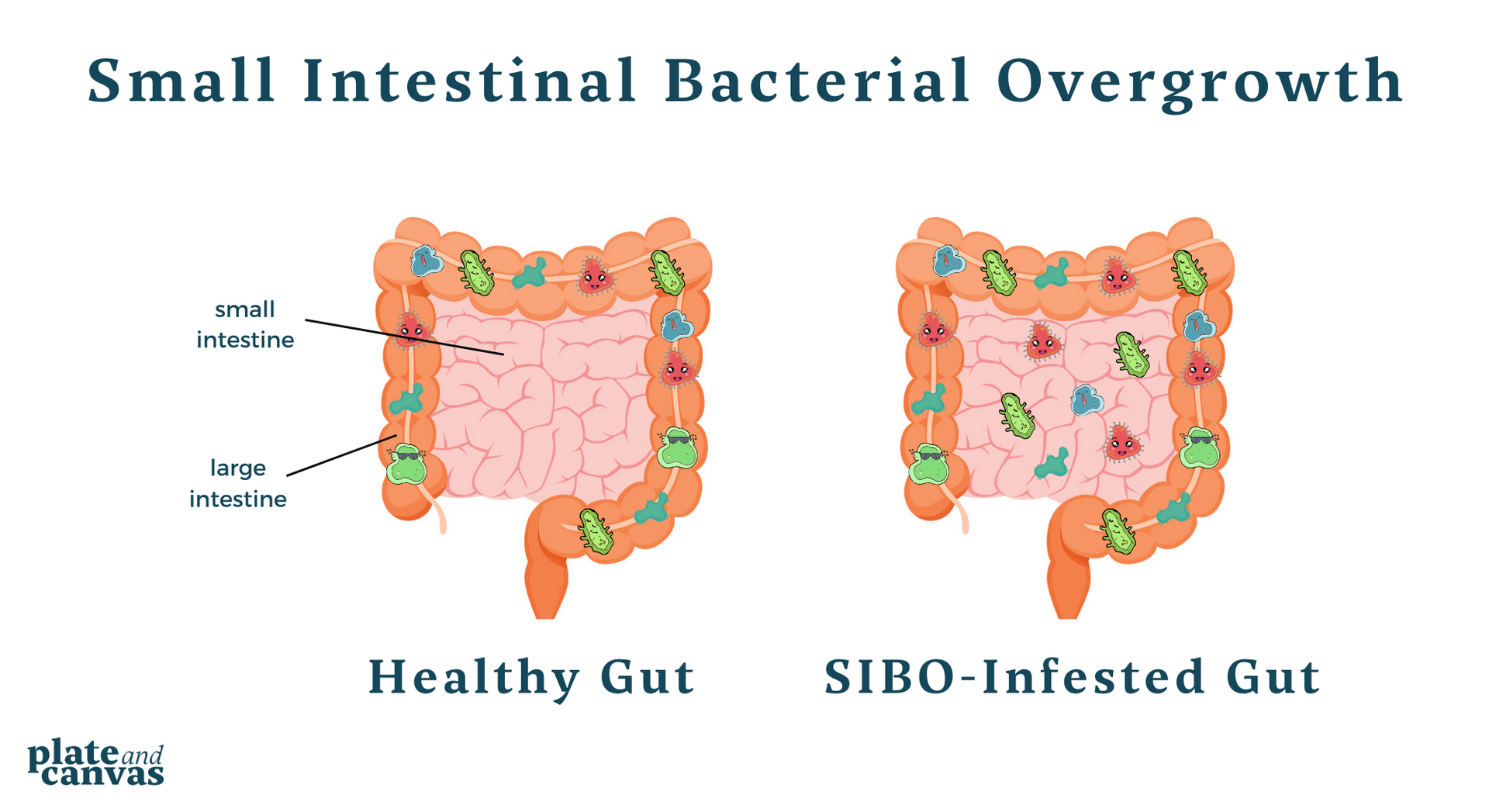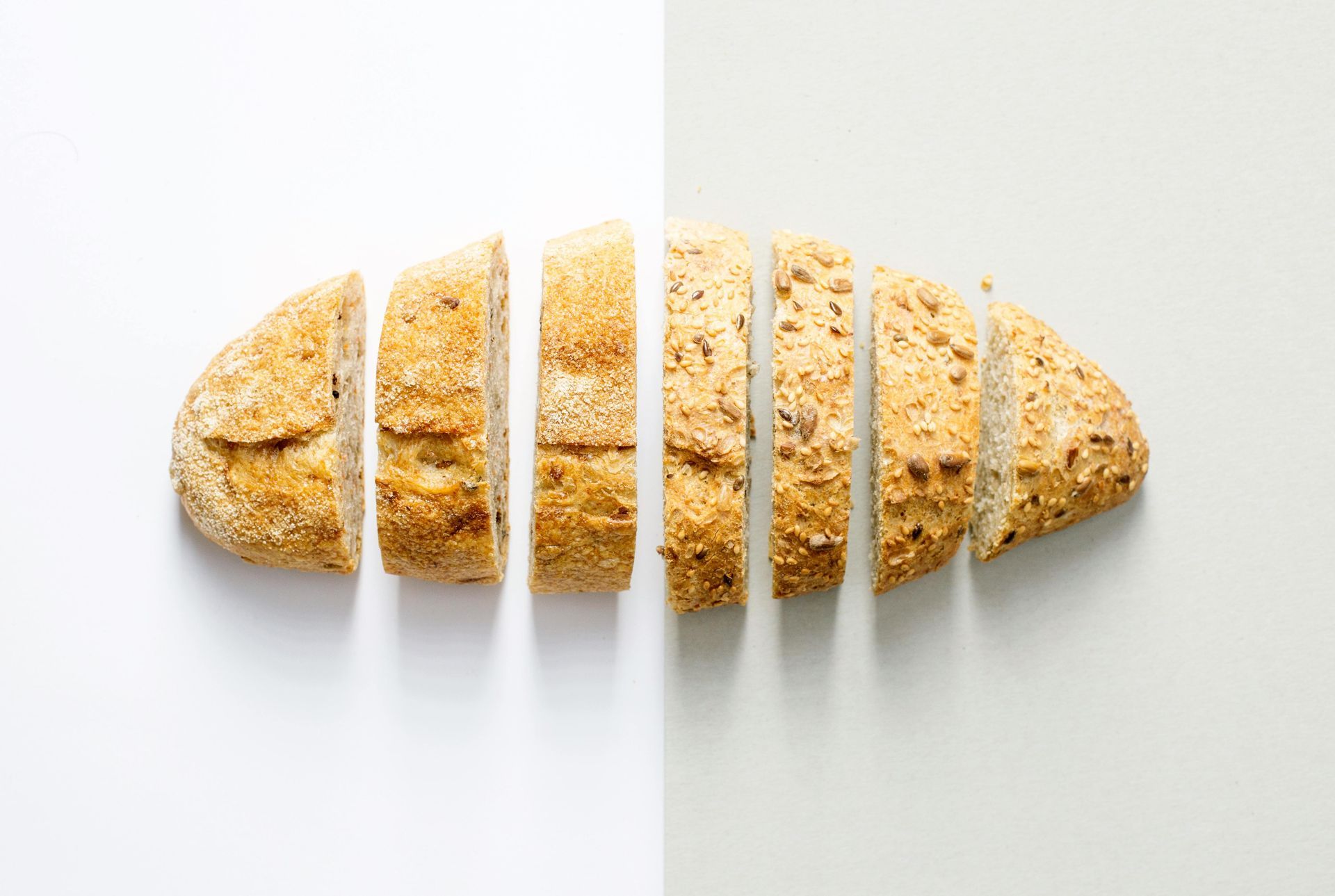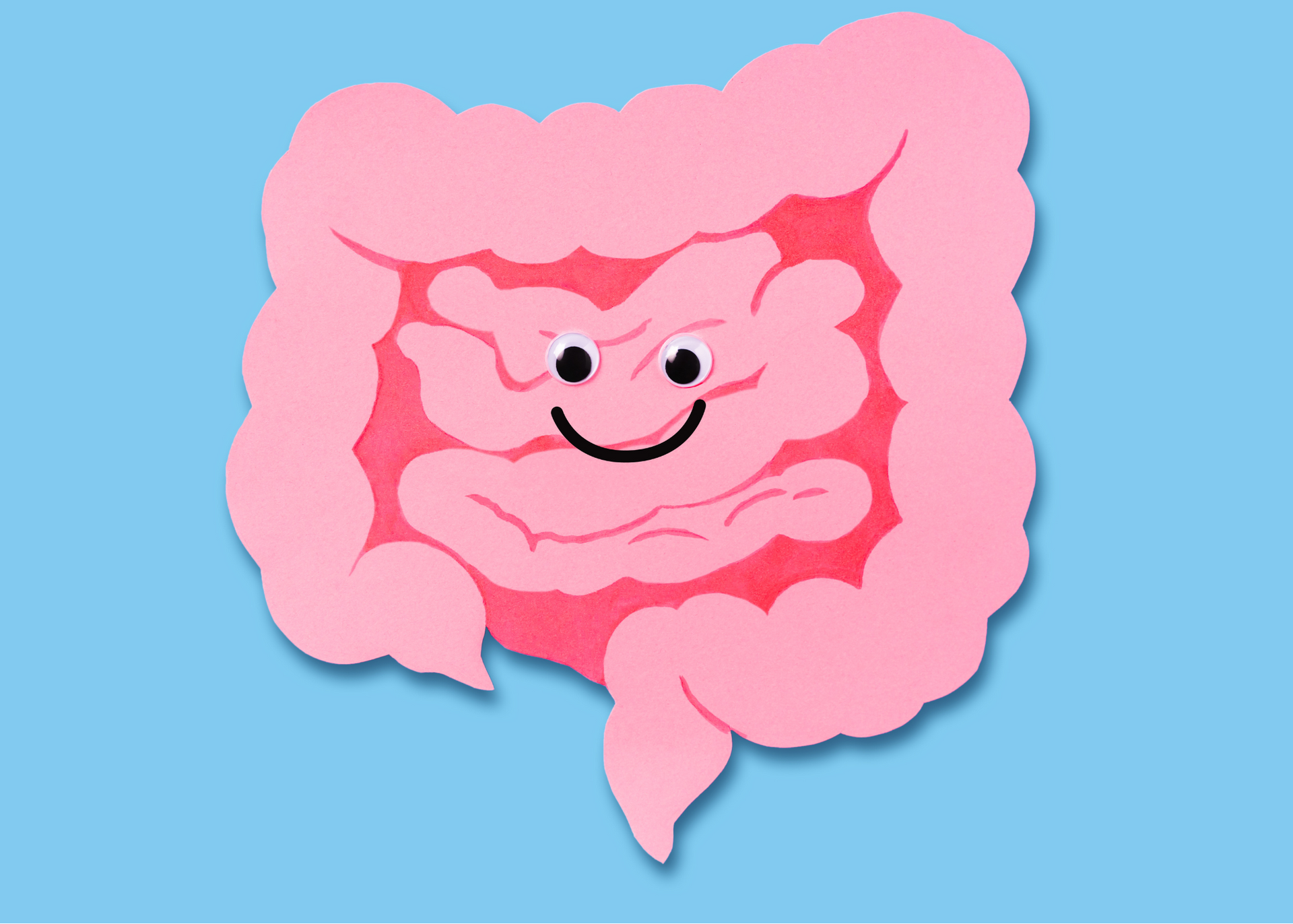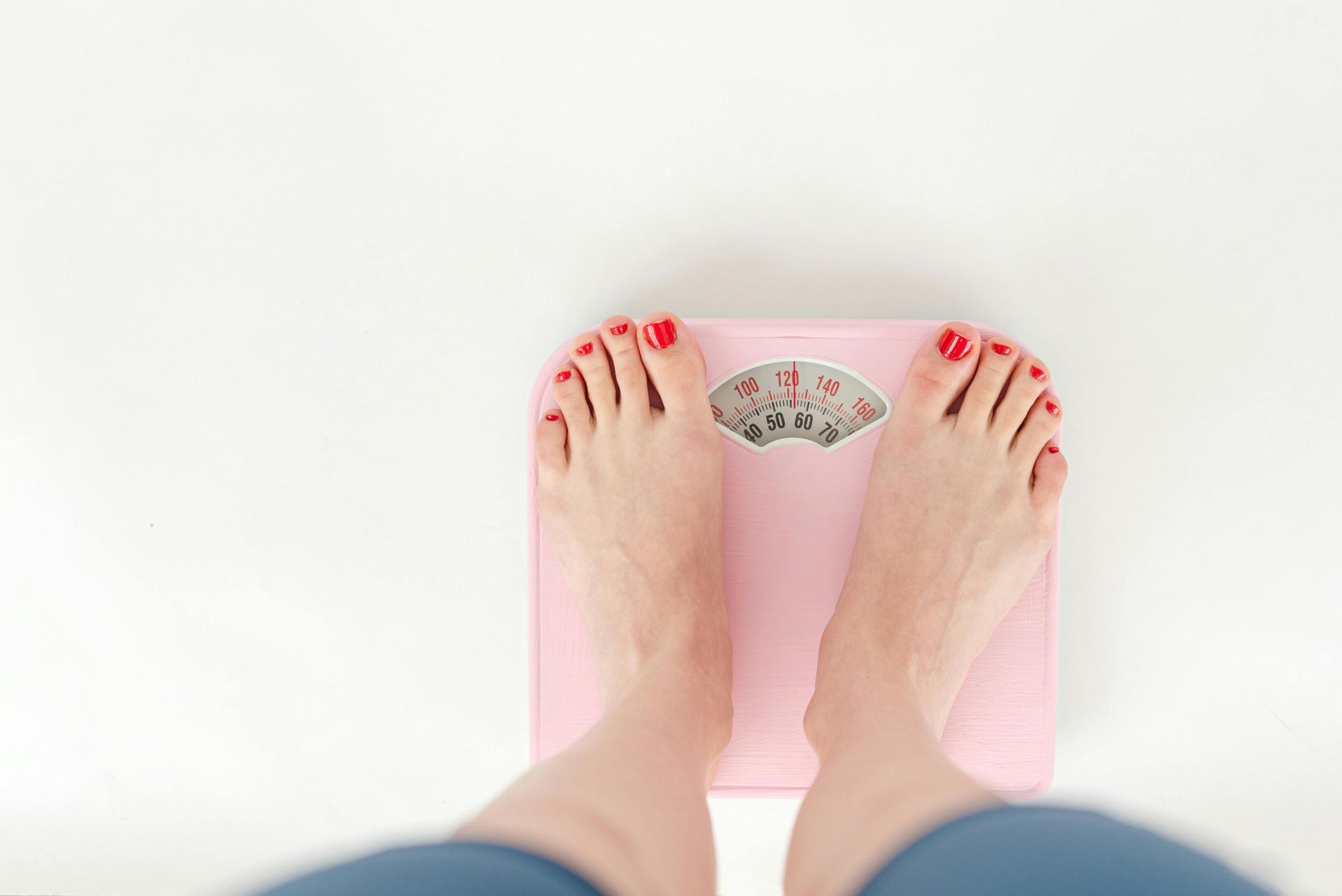Bloated? It might be SIBO.
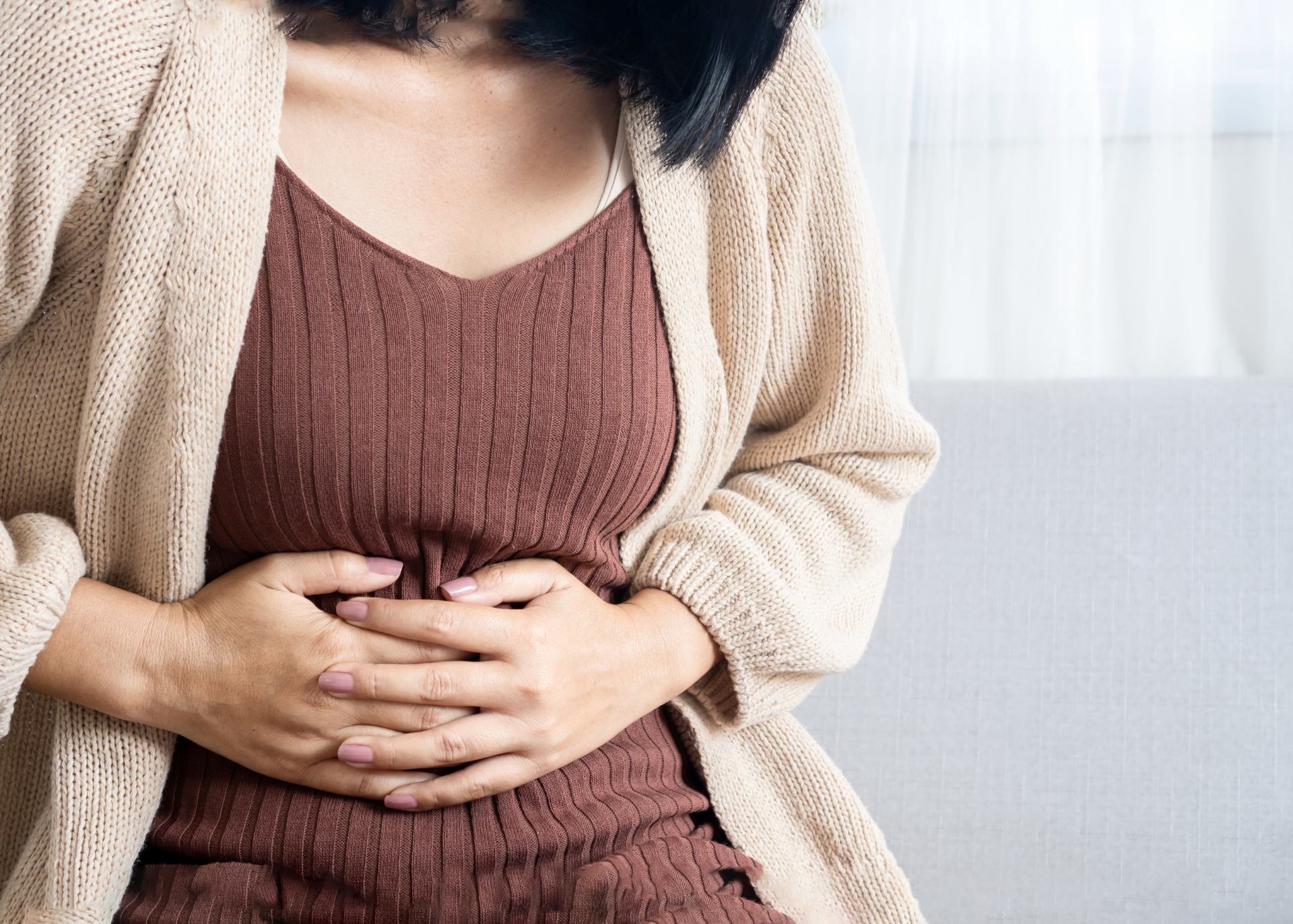
If you're constantly feeling bloated — whether it's after meals or seemingly out of nowhere — small intestinal bacterial overgrowth (SIBO) could be the culprit.
Bloating is the most common symptom of SIBO, but it doesn't stop there. SIBO can also trigger constipation, diarrhea, anxiety, skin issues, weight changes, fatigue, and more.
In this blog, I’ll cover:
- What is SIBO?
- Symptoms of SIBO
- Common causes of SIBO
- How to test for SIBO (hint: it’s not a stool test)
What is SIBO?
Your large intestine is home to trillions of bacteria that help with digestion, immune function, and even the production of neurotransmitters like serotonin.
But when these bacteria migrate up into the small intestine, it can cause serious problems.
Small intestinal bacterial overgrowth (SIBO) isn’t an infection — it’s an overgrowth of normal bacteria in the wrong place.
When you eat fermentable carbohydrates (found in fruits, vegetables, grains, and dairy), these bacteria feed on the carbs and produce hydrogen, methane, and/or hydrogen sulfide gas.
This gas buildup is the driver of symptoms, especially bloating.
Symptoms of SIBO
SIBO symptoms can vary, but the most common include:
- Bloating and gas, often worsening as the day goes on
- Diarrhea, constipation, or alternating between the two
- Abdominal pain or cramping
- Foul-smelling gas
- Nausea
- Poor bile production and fat malabsorption
- Low stomach acid production
- Histamine intolerance (hives, itchy skin, sneezing, runny nose, and other allergy-like symptoms)
- Eczema
- Systemic sclerosis
- Unexplained weight loss or weight gain
- Osteoporosis or osteopenia
- Increased intestinal permeability (“leaky gut”)
- Vitamin deficiencies (vitamins D, E, A, and B12)
- Mineral deficiencies (iron and zinc)
- Tingling sensations after meals
- Light sensitivity
- Autoimmune disease development
SIBO Types
There are also three types of SIBO, depending on which gas is dominant:
- Hydrogen-dominant SIBO: More likely to cause diarrhea or mixed bowel patterns
- Methane-dominant SIBO: More commonly associated with constipation
- Hydrogen sulfide-dominant SIBO: Often presents with foul-smelling gas, tingling sensations, and/or light sensitivity
If you have SIBO, you might also notice your symptoms flare after eating high-FODMAP foods like garlic, onions, cauliflower, asparagus, dairy products, and beans.
I’ve worked with clients who felt fine when they woke up but looked six months pregnant by dinnertime.
In many cases, they tried eliminating dairy, gluten, and other foods on their own with little relief — but once we identified and addressed the root cause (SIBO), their bloating, skin issues, and fatigue dramatically improved.
What Causes SIBO?
SIBO often develops when the gut’s natural “housekeeping” system — the migrating motor complex (MMC) — isn’t working properly.
The MMC is a series of muscle contractions, triggered by the vagus nerve, that sweeps bacteria, food particles, and waste down the digestive tract between meals.
Normally, it fires 8–12 times per day. In people with SIBO, it might fire as little as 1–2 times per day, giving bacteria the chance to overgrow.
Other factors that can set the stage for SIBO include low digestive enzyme production. Stomach acid, bile, and pancreatic enzymes normally keep bacterial levels in check — when they're lacking, bacteria can thrive where they shouldn’t.
Common risk factors for SIBO include:
- C-section birth
- Low intake of probiotic-rich foods
- Vegetarian or high-carbohydrate diets
- Use of acid-blocking medications (Prilosec, Prevacid, Nexium, Pepcid, Zantac, etc.)
- Frequent antibiotic use
- Opioid and NSAID use
- High stress levels
- Nerve or muscle damage (such as from surgeries or neurological disorders)
- Food poisoning
- Bulimia
- Hormone imbalances
- Endometriosis
- Immune system dysfunction
- Underlying bacterial or viral infections
- Mold toxicity
- Neck or back injuries affecting the vagus nerve
- Frequent eating with little fasting time between meals
- Regular alcohol consumption
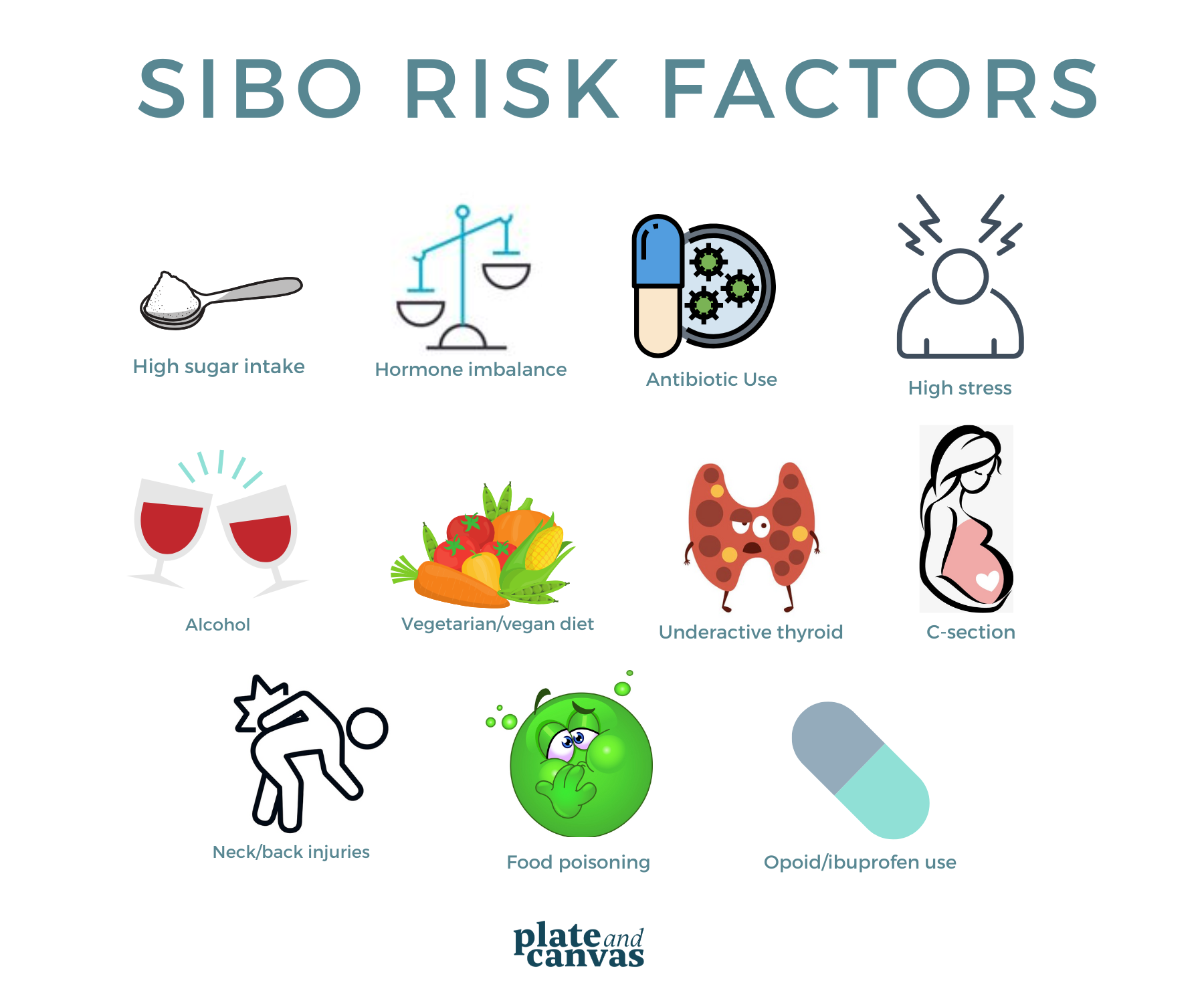
How to Test for SIBO
The most accurate way to diagnose SIBO is through a breath test — not a stool test.
Stool testing only reveals what's happening in the large intestine, and organic acid tests don't differentiate between the large and small intestines.
The SIBO breath test is performed at home over about three hours.
After following a specific prep diet (we provide instructions), you'll drink a glucose solution and breathe into test tubes at timed intervals.
In a healthy gut, hydrogen and methane gases are produced only once the solution reaches the large intestine (after about three hours).
In someone with SIBO, gas production spikes much earlier — a key indicator of bacterial overgrowth in the small intestine.
Because interpreting SIBO tests isn’t always black-and-white, it’s important to work with a practitioner who’s experienced in both testing and treatment.
(When you
work with us, we not only guide you through the prep and
testing process — we also help you make sense of the results and create a clear, personalized plan based on your unique case.)
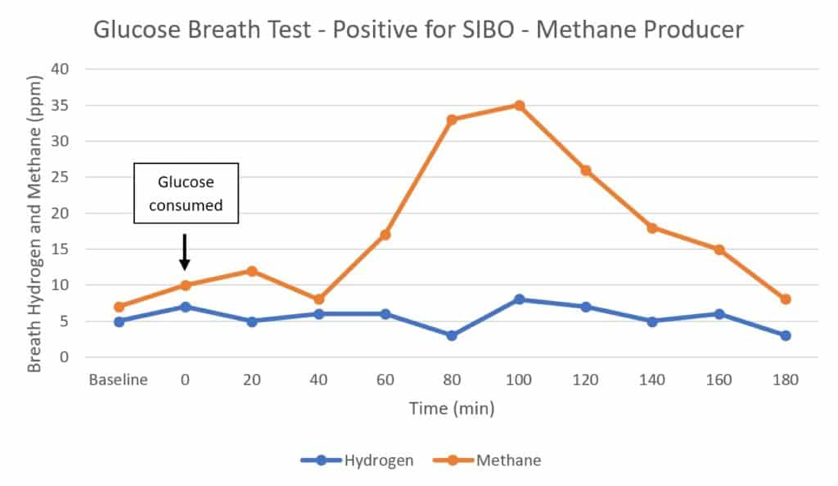
Quick Recap: Key Takeaways
Possible Signs of SIBO: Bloating, gas, constipation, diarrhea, and skin issues can all point to small intestinal bacterial overgrowth.
Why It Happens: SIBO develops when bacteria overgrow in the small intestine, often due to issues like slow gut motility or other digestive imbalances.
How to Test for It: Breath testing is the most accurate way to diagnose SIBO—not stool testing.
Why The Root Cause Matters: Addressing the underlying reason for SIBO is key for long-term gut health and symptom relief.
Up Next
In Part 2 of this blog series, I’ll walk you through how to treat SIBO naturally, why antibiotics alone often fail, and what you need to know about the low-FODMAP diet. Stay tuned!
Struggling with bloating or other gut issues?
We help clients uncover and heal the root causes of SIBO naturally.
If you’re looking for
personalized, expert guidance, learn more about working with us
here.
Continue Reading
